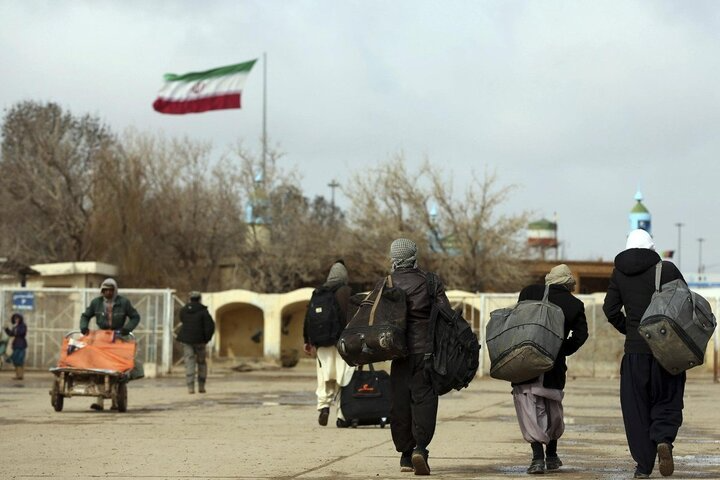Immigrophobia: A Complementary Element of Israel’s Hybrid War Against Iran
DIDPress: While the Islamic Republic of Iran faces a comprehensive assault by the Zionist regime, the hidden dimensions of this aggression have evolved beyond mere military conflict into a “hybrid war.” A hybrid war blends military operations, diplomatic pressure, media warfare, psychological operations, cyber warfare, and even the exploitation of social divisions.

Amid this, the anti-Afghan immigrophobia project in Iran has been reactivated and updated as part of the enemy’s psychological warfare.
The Dimensions of Hybrid Warfare
Israel and its Western allies are not only pursuing airstrikes against military, scientific, media, and residential targets in Iran—they are also waging an organized disinformation campaign across social media and digital platforms. From exaggerating the enemy’s military capabilities to sowing fear and confusion in society, this psychological warfare complements the physical attacks.
Immigrophobia as a Cyber Weapon in Psychological Warfare
Within this framework, anti-Afghan immigrophobia has resurfaced as an effective tool in hybrid warfare. A flood of content is being mass-produced and disseminated online, baselessly accusing Afghan migrants of espionage and collaboration with the enemy. This narrative is designed to erode trust, spread hatred, and provoke public hostility toward this vulnerable group.
Capitalizing on the anger and fear generated by Israel’s attacks, this campaign seeks to paint Afghan refugees as fifth-column infiltrators, despite their deep-rooted ties to Iran.
Why Targeting Afghan Migrants?
This renewed immigrophobic wave has emerged precisely when many Afghan migrants—especially second and third-generation—were born in Iran and consider themselves Iranian. Culturally, religiously, and linguistically integrated, they have coexisted with Iranians for decades. Many have stood alongside Iranian forces, whether during the Sacred Defense (Iran-Iraq War) or in the fight against ISIS and the defense of holy shrines.
The complete integration of Afghan migrants into Iranian society makes accusations of “betrayal” not only false but historically and socially absurd.
The Psychology of Old Wounds
Afghan migrants are often victims of war, poverty, or political instability in their homeland. Now, as Iran—their sanctuary—comes under attack, their sense of insecurity has been doubled. This is not just a physical threat but a reopening of psychological and historical wounds. Many have endured forced displacement, the loss of loved ones, and statelessness. The fear of reliving such trauma, combined with the pressures of war and social stigma, has imposed a crushing burden of anxiety on them.
From Patriotism to Reverse Victim-Blaming
Ironically, while Afghan migrants share Iranians’ grief over the enemy’s aggression, shadowy online actors and anonymous media outlets are framing them as the source of insecurity. Through fabricated rumors and false reports, they fuel negative sentiments against refugees. Some baselessly accuse Afghans of sabotage or spying for Israel.
This manufactured narrative is a form of reverse victim-blaming, portraying a vulnerable group—already suffering from insecurity—as a security threat. The goal is clear: to fracture Iran’s social cohesion, divert attention from the real enemy, and create an artificial crisis within Iranian society.
Social and Media Responsibility
At a time when Iran faces a serious threat, the public, media, and civil institutions must remain vigilant against such psychological operations. Undermining social unity from within is precisely what the enemy seeks—whether through bombs or lies.
Independent media and intellectuals bear a critical responsibility: they must expose disinformation, counter rumors, and neutralize psychological warfare by promoting truth and solidarity.
Conclusion
As Iran endures a multifaceted assault, the immigrophobia project has been activated as part of this hybrid war—aiming to replace unity with division.
In this critical moment, the public and media must recognize the enemy’s psychological tactics and reject hatred and rumors in favor of national unity and social solidarity. Attacking Afghan migrants is not only immoral and against Iran’s national interests—it means playing into the hands of an enemy whose ultimate goal is Iran’s internal collapse. Not just through bombs and missiles, but by detonating silent bombs in the minds and hearts of the people.
Author: Rahel Mousavi